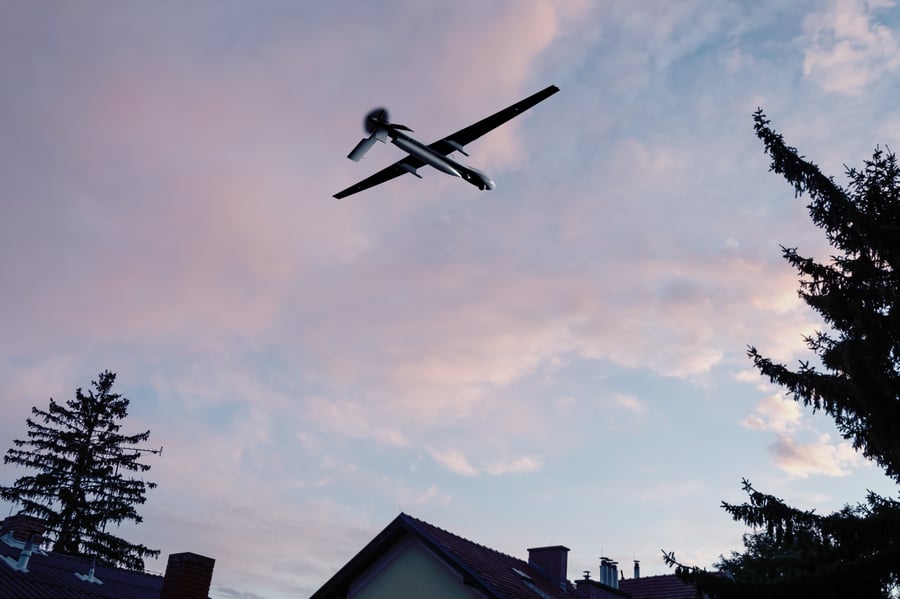
On an airstrip in the bright Florida sunshine, a nondescript refrigerator-sized box sat upright on the tarmac. Suddenly, its sides flew open and a slender fuselage with twin jet engines roared skyward, climbing at a steep angle before arcing over and streaking away in level flight.
This was no ordinary missile or drone. It was the M Roadrunner, a bold new concept in air defense being developed by the iconoclastic start-up Anduril Industries. Part aircraft, part missile, the Roadrunner aims to revolutionize how the military defends against the rising global threat of low-cost drones and loitering munitions, as reported by Walla News.
"We've entered a new era where our adversaries can build their own cheap, autonomous weapons to overwhelm our defenses," said Palmer Luckey, Anduril's 32-year-old founder. "The Roadrunner takes an entirely different approach to neutralize these threats quickly and efficiently."
Rather than surface-to-air missiles firing from fixed sites, the Roadrunner is essentially a smart, reusable munition housed in a portable launch canister. Upon acquiring a target from radar data, the canister opens and the Roadrunner flies out using its onboard sensors to visually identify and ram the hostile drone or cruise missile out of the sky.
If there are no threats in the vicinity, the Roadrunner can autonomously return to attempt a controlled, vertically landing back into its launch canister — much like a SpaceX rocket — ready for its next mission within minutes.
"It buys you time and flexibility to deploy interceptors only when absolutely needed," Mr. Luckey explained during a briefing at Anduril's Florida test range. "And if they miss, you can simply recover and reuse them, rather than wasting million-dollar missiles."
Although Israel has faced an influx of drones from Hezbollah and Hamas operating out of Lebanon and Gaza and its hefty $13 billion annual defense budget, it is lagging behind in its mission to develop new counter-drone capabilities.
One leading prospect has been the "Coyote" system being offered by U.S. defense giant Raytheon, which deploys kinetickill vehicles described as kamikaze drones to destroy threats by force of impact. But at roughly $100,000 per shot, the expendable Coyote munitions become costly with repeated use.
By contrast, Anduril sees each fully reusable Roadrunner airframe costing just a few hundred thousand dollars. Restoring it to service after a mission would require only refueling and relatively cheap missile replacement parts.
Originally founded in 2017 after Mr. Luckey was fired from Facebook over controversial political comments, Anduril quickly gained traction with its innovative fusion of artificial intelligence, computer vision and autonomous systems. This past December, it secured a potentially game-changing $12.5 million contract with U.S. Special Operations Command to develop the Roadrunner for countering the drone threats facing American troops overseas.
Just two months later, Anduril's audacious mash-up of sci-fi concepts shook up the defense establishment when it won the right to compete for the U.S. military's prized next-generation armed reconnaissance drone program. Though dismissed initially by many as a maverick outlier, Anduril's novel ideas are now being taken very seriously by Pentagon planners.
"We can't keep throwing money at archaic, single-use missile systems," said Mr. Luckey emphatically. "The future belongs to smart, autonomous, and reusable systems that can rapidly adapt to new threats as they emerge."
As the whine of the returning Roadrunner signaled another successful test flight, it offered a glimpse of that future and how modern warfare may be poised to fundamentally change once again.













0 Comments